 |
|---|
|
The Basilicata regional election of 1990 took place on 6 and 7 May 1990.

 |
|---|
|
The Basilicata regional election of 1990 took place on 6 and 7 May 1990.

Christian Democracy was by far the largest party, gaining more than twice the share of vote of its main competitors, the Italian Communist Party, which had its worst result ever in a regional election, and the Italian Socialist Party, which gained its best result ever. After the election, the Christian Democrat Antonio Boccia was elected President of the Region.
 | ||||
|---|---|---|---|---|
| Parties | votes | votes (%) | seats | |
| Christian Democracy | 185,409 | 47.2 | 15 | |
| Italian Communist Party | 75,604 | 19.2 | 6 | |
| Italian Socialist Party | 70,947 | 18.0 | 6 | |
| Italian Democratic Socialist Party | 23,918 | 6.1 | 2 | |
| Italian Social Movement | 13,268 | 2.4 | 1 | |
| Italian Republican Party | 7,683 | 2.0 | - | |
| Italian Liberal Party | 5,889 | 1.5 | - | |
| Green List | 3,722 | 1.0 | - | |
| Proletarian Democracy | 2,853 | 0.7 | - | |
| Rainbow Greens | 1,829 | 0.5 | - | |
| Antiprohibitionists on Drugs | 1,476 | 0.4 | - | |
| Southern League Lucania | 631 | 0.2 | - | |
| Total | 393,229 | 100.0 | 30 | |
Source: Ministry of the Interior

The Christian Social Union in Bavaria is a Christian democratic and conservative political party in Germany. Having a regionalist identity, the CSU operates only in Bavaria while its larger counterpart, the Christian Democratic Union (CDU), operates in the other fifteen states of Germany. It differs from the CDU by being somewhat more conservative in social matters, following Catholic social teaching. The CSU is considered the de facto successor of the Weimar-era Catholic Bavarian People's Party.

Christian Democracy was a Christian democratic political party in Italy. The DC was founded on 15 December 1943 in the Italian Social Republic as the ideal successor of the Italian People's Party, which had the same symbol, a crusader shield. As a Catholic-inspired, centrist, catch-all party comprising both centre-right and centre-left political factions, the DC played a dominant role in the politics of Italy for fifty years, and had been part of the government from soon after its inception until its final demise on 16 January 1994 amid the Tangentopoli scandals. Christian Democrats led the Italian government continuously from 1946 until 1981. The party was nicknamed the "White Whale" due to its huge organisation and official colour. During its time in government, the Italian Communist Party was the largest opposition party.
Parliamentary elections were held in Norway on 11 and 12 September 2005. The result was a victory for the opposition centre-left Red-Green Coalition, which received 48.0% of the votes and won 87 out of 169 seats, dominated by the Labour Party's 61 seats. The three-party centre-right government coalition won 44 seats and the right wing Progress Party won 38, becoming the largest opposition party. Voter turnout was 77.1%, an increase of 2 percentage points compared to the 2001 elections.

The Sardinian Action Party is a Sardinian nationalist, regionalist and separatist political party in Sardinia. While being traditionally part of the Sardinian centre-left, the party has also sided with the centre-right coalition and, more recently, with the League.

The Italian Socialist Party was a social-democratic and democratic-socialist political party in Italy, whose history stretched for longer than a century, making it one of the longest-living parties of the country. Founded in Genoa in 1892, the PSI was from the beginning a big tent of Italy's political left and socialism, ranging from the revolutionary socialism of Andrea Costa to the Marxist-inspired reformist socialism of Filippo Turati and the anarchism of Anna Kuliscioff. Under Turati's leadership, the party was a frequent ally of the Italian Republican Party and the Italian Radical Party at the parliamentary level, while lately entering in dialogue with the remnants of the Historical Left and the Liberal Union during Giovanni Giolitti's governments to ensure representation for the labour movement and the working class. In the 1900s and 1910s, the PSI achieved significant electoral success, becoming Italy's first party in 1919 and during the country's Biennio Rosso in 1921, when it was victim of violent paramilitary activities from the far right, and was not able to move the country in the revolutionary direction it wanted.

The 1987 Italian general election was held in Italy on 14–15 June 1987. This election was the first Italian election in which the distance between the Christian Democrats and the Communists grew significantly instead of decreasing. Two parties that had not previously been in parliament won representation: the Greens with thirteen seats, and the Northern League with two.

The 1992 Italian general election was held on 5 and 6 April 1992. They were the first without the traditionally second most important political force in Italian politics, the Italian Communist Party (PCI), which had been disbanded in 1991. Most of its members split between the more democratic-socialist oriented Democratic Party of the Left (PDS), while a minority who did not want to renounce the communist tradition became the Communist Refoundation Party (PRC); however, between them they gained around 4% less than what the already declining PCI had obtained in the 1987 Italian general election, despite PRC absorbing the disbanded Proletarian Democracy (DP).
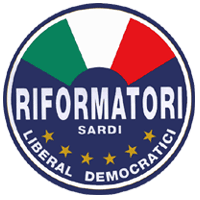
The Sardinian Reformers is a liberal-conservative and regionalist, Christian-democratic political party in Sardinia, led by Michele Cossa. The party, which has always been part of the centre-right at the Sardinian regional level, is a keen supporter of the free market, competition, globalization and a two-party system.
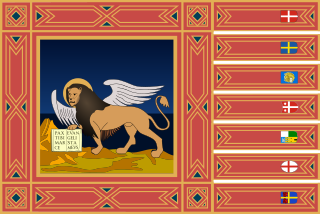
The Politics of Veneto, a Region of Italy takes place in a framework of a semi-presidential representative democracy, whereby the President is the head of government, and of a pluriform multi-party system. Executive power is exercised by the Regional Government. Legislative power is vested in both the government and the Regional Council.

This page gathers the results of elections in Veneto.
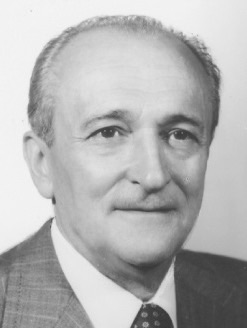
The 1984 European Parliament election in Italy was held on 17 June 1984.
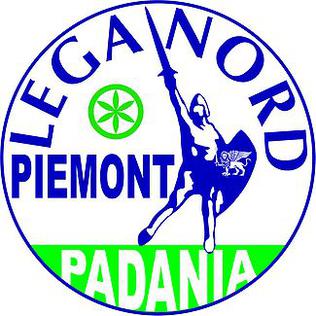
Lega Piemonte, whose complete name is Lega Piemonte per Salvini Premier, is a regionalist political party active in Piedmont. Established in 1987, it was one of the founding "national" sections of Lega Nord (LN) in 1991 and has been the regional section of Lega per Salvini Premier (LSP) in Piedmont since 2020.

The 1990 Calabrian regional election took place on 6 and 7 May 1990.

The Campania regional election of 1990 took place on 6 and 7 May 1990.

The Apulian regional election of 1990 took place on 6 and 7 May 1990.
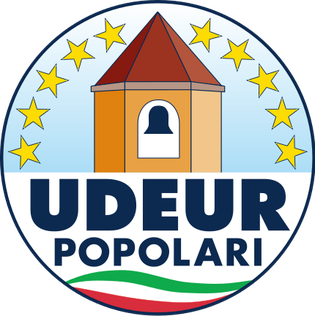
The Union of Democrats for Europe, also known as UDEUR Populars, was a minor centrist, Christian-democratic political party in Italy.

The Italian Social Movement was a neo-fascist political party in Italy. A far-right party, it presented itself until the 1990s as the defender of Italian fascism's legacy, and later moved towards national conservatism. In 1972, the Italian Democratic Party of Monarchist Unity was merged into the MSI and the party's official name was changed to Italian Social Movement – National Right.

The Italian regional elections of 1990 were held on 6 and 7 May. The fifteen ordinary regions, created in 1970, elected their fifth assemblies.
The centre-left coalition is an alliance of political parties in Italy active, under several forms and names, since 1995 when The Olive Tree was formed under the leadership of Romano Prodi. The centre-left coalition has ruled the country for more than 15 years between 1996 and 2022.